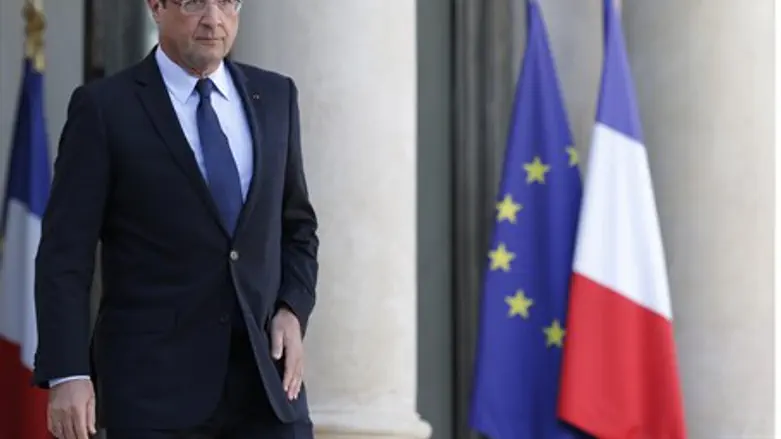
Once France's most unpopular post-war president, Francois Hollande has experienced a dramatic surge in approval ratings over his widely-praised response to the Islamist attacks in Paris, AFP reports Monday.
An opinion poll carried out by the Ifop polling company showed Hollande's ratings jump by a massive 21 percentage points to 40 percent after the spate of attacks two weeks ago that left 17 people dead.
"This is a rare phenomenon in the history of opinion polls," in France, said Ifop expert Frederic Dabi.
He said the only other such example was when Francois Mitterrand soared 19 points in the ratings during France's participation in the Gulf War of 1990-1991.
Prime Minister Manuel Valls, who talks a tough line on security, also saw his ratings jump 17 percentage points to 61 percent - higher than when he first took office in April 2014.
Prior to the attacks, record French unemployment, sluggish growth and a string of personal and political scandals had sent Hollande's ratings plunging to historic lows.
But his response to the country's worst attacks in decades has seen his image transform from that of bumbling, dithering president to solid, reassuring statesman.
Not known for his charisma, Hollande moved the nation with several powerful speeches calling for unity in the face of the attacks on Charlie Hebdo satirical magazine, a Jewish supermarket and police officers.
The image of the Socialist leader comforting a sobbing Charlie Hebdocolumnist at a mammoth rally in Paris came to symbolize the empathy he exuded.
But Andrew Knapp, an expert in French politics at Britain's University of Reading, said the afterglow was unlikely to last for Hollande, "unless there is better news on another front."
He said if the situation remained calm in France, people would quickly "get back to the old tedious business of economic growth and unemployment and Hollande's ratings will slide down accordingly."
Conversely, fresh attacks could also hurt him as the feeling would likely set in that whatever remedy Hollande had applied was not working, he argued.
French political analyst Thomas Guenole agreed that the popularity accompanying Hollande's "war chief" transformation was likely a flash in the pan.
But, Guenole said, whatever happens, the days of Hollande-bashing were probably over, as he had finally proven himself a capable leader.
Far-right to reap benefit?
The attacks by three Islamist gunmen have sparked rare scenes of unity, with Valls receiving a standing ovation in parliament, and lawmakers in the National Assembly solemnly singing the Marseillaise anthem for the first time in nearly a century.
But on the sidelines of this united front is far-right National Front leader Marine Le Pen, whom analysts say is likely to be the chief long-term beneficiary of recent events.
"Le Pen is playing it quite intelligently," said Knapp.
"She is not saying Islam is incompatible with the French republic... she is still saying part of the problem is uncontrolled immigration."
The attacks have thrown the spotlight on the Muslim community in France, the biggest in Europe with about four to five million people.
Meanwhile former president Nicolas Sarkozy, who is positioning himself for a comeback in 2017 elections, was the "short-term loser" after the attacks, said Knapp.
"I don't think he has been able to find a slot to present himself as some kind of better alternative," Knapp stated. "Hollande has occupied the statesmanlike role quite comfortably."
